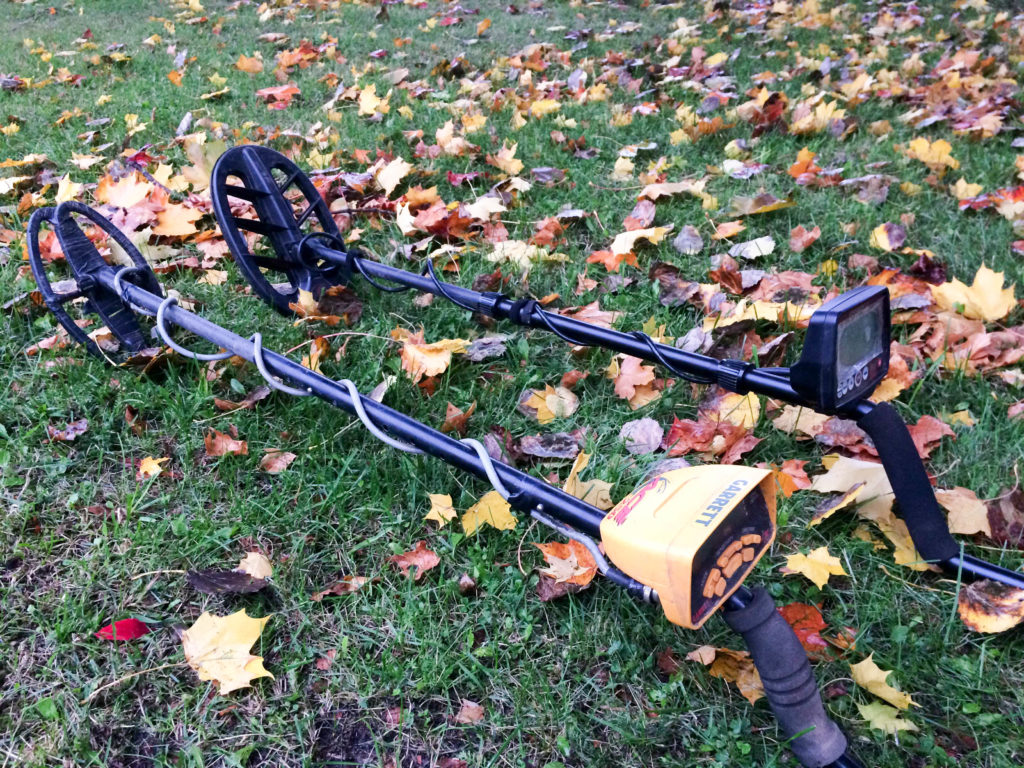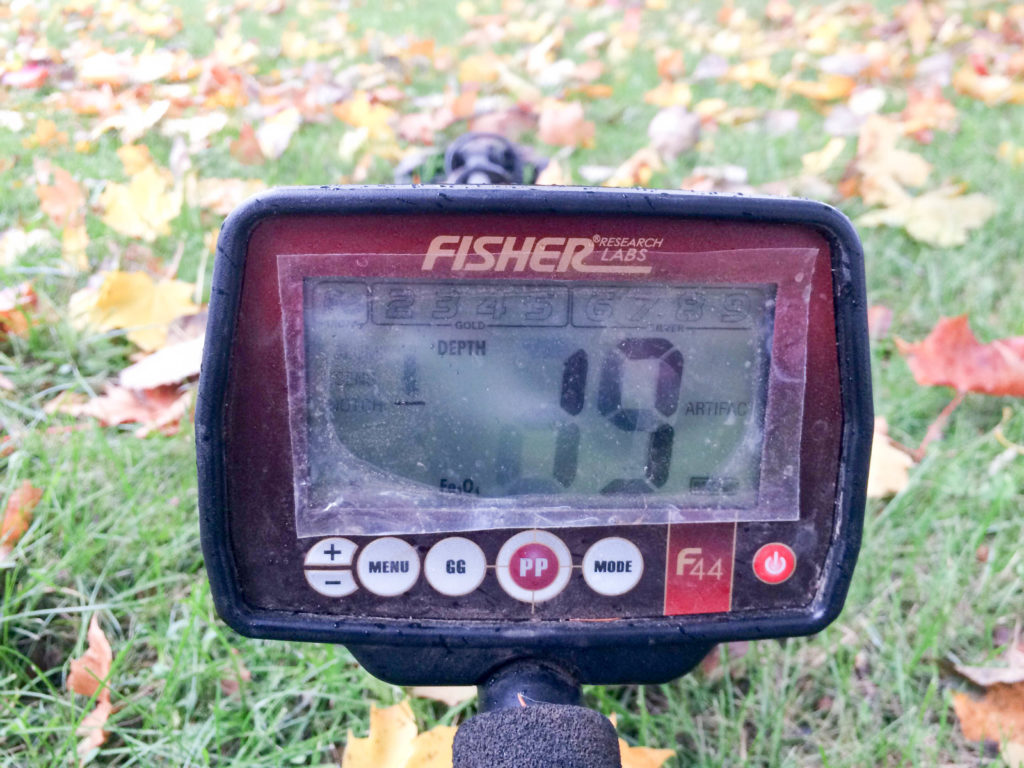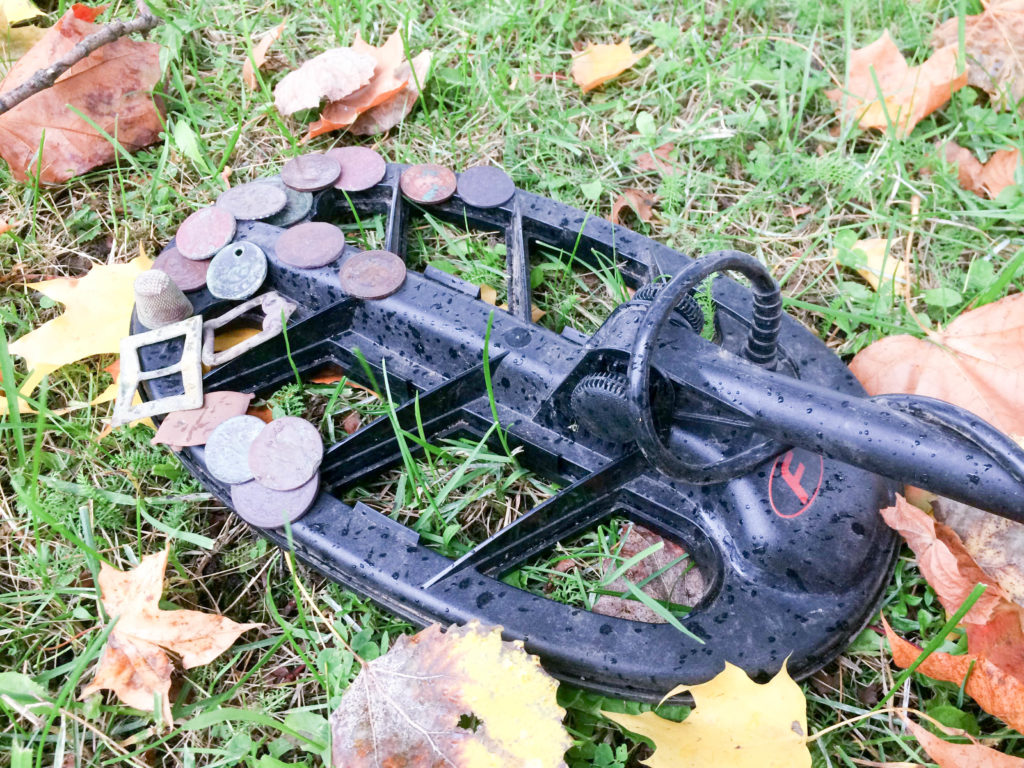Garrett Ace 250 and Fisher F44 – comparison of metal detectors
Comparison is an ignoble thing. Moreover, comparing such different devices in their class and with an age difference of almost 10 years, and in our time of rapid technological development, this is a very long time! But still, I will take a risk for the simple reason that there is still very little information on the Internet from real users, and not advertisers of the device.
Why did I decide to compare the ICQ 250 (DD Nel Sharpshooter reel) with the Fisher ? Yes, because I spent two years with this wonderful device! But for the same reason of technological development, I decided to try something new and purchased a Fisher F44 with an 11 DD coil. By the way, I also decided not to part with ICQ, since the device is very reliable and proven.

I won’t describe the disadvantages of ICQ in comparison with Fisher: everyone who was interested in these devices already knows everything very well, but I’ll go straight to how these devices behave in practice.
What pleased me most about the Fisher was the adjustable volume and very pleasant tones in response to metal responses. Since I go in the “artifacts” mode (this is essentially the “all metals” mode), walking with headphones for 3-4 hours in fairly littered fields and not being annoyed by the sounds of “black stuff” is really pleasant. “Aska” in this sense was very annoying, since the tone of its “chernina”, although low, is at the same sound level as other metals, and you quickly get tired of the constantly shimmering tones.

By the way, the Fisher also has a function called “Fetone”: you can either reduce the sound of “black” compared to other metals, or even turn off the sound of black
metal, and only the icon that metal has been detected will light up on the display. True, I haven’t used this function yet, since I rarely look at the display after ICQ and am used to hearing what’s under my coil.

Now it’s time to tell you what, in my opinion, is the most useful difference: “Fisher,” unlike “ICQ,” picks up targets very quickly and recognizes them just as quickly. “ICQ” often picks up “chernina” as “tsvetnina” and you have to run it a second time to accurately check the signal. “Fisher” clearly grunts in a low tone at “chernina”. There are, of course, moments when “Fischer” doubts the definition. For example, on ICQ I often dug such iron plates with oval holes along the edges: she told me that this was a clear coin signal; “Fisher” can also squeak in a high tone on such a piece of hardware, but at the same time grunt in a low tone. With such a signal, all that remains is to hover over the target a couple more times and make sure that these are not different targets, and the display will also indicate that the target contains iron .
 Another big plus is that “ Fischer” very accurately recognizes nearby targets from “tsvetnina” and “chernina”. “ICQ” also recognizes it well with a DD coil, but again, it takes more time.
Another big plus is that “ Fischer” very accurately recognizes nearby targets from “tsvetnina” and “chernina”. “ICQ” also recognizes it well with a DD coil, but again, it takes more time.
I won’t say anything about depth. For me, this is generally a proverbial concept: all sorts of air tests that show some incredible results, in real field conditions, look completely different.
Yes, and “Fisher” also has a “ground balance” function. Using it is not difficult and does not bother you; say, every 15 minutes you press a button and wave the coil vertically above the ground. After this operation, the device works even more stable. By the way, I walked in different conditions: in the forest, in a field with mown grass and in a field with already grown rapeseed, and the sensitivity was always set to maximum, while there were practically no phantom signals.
Let me give advice to novice search enthusiasts who are faced with the choice of which device to choose to begin with. Everything, of course, depends on your budget and a used ICQ is an excellent start to mastering metal detecting, and I can honestly say that you will have no less interesting finds than with another, more professional device (I personally picked up a “scale” with the smallest standard coil ), but at the same time you will have to dig a lot of ferrous metal, and finds from it are rarely interesting, if, of course, you are digging according to antiquity, and not according to war.

With “Fisher” you will dig less iron and in a short time it will be clear to you what lies under the reel. And the light weight of the device and operation from two AA batteries, combined with the moisture resistance of the control unit, will give you a comfortable time while searching. Of course, the price is higher, but, as they say, you have to pay for pleasure.
 My opinion : “Fisher” is a very comfortable device, equipped with modern technologies, which for an experienced user make digging a pleasant walk and, due to the ease of use of its useful functions, is suitable for all novice search lovers!
My opinion : “Fisher” is a very comfortable device, equipped with modern technologies, which for an experienced user make digging a pleasant walk and, due to the ease of use of its useful functions, is suitable for all novice search lovers!
Good luck on the mine! Everything useful about Fisher F44 is collected here.
